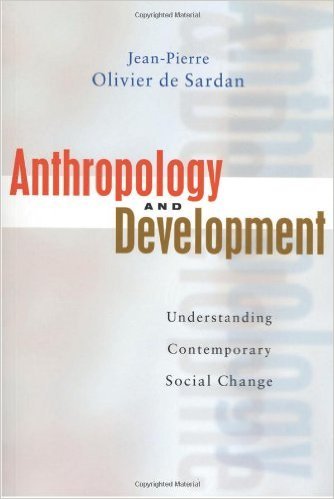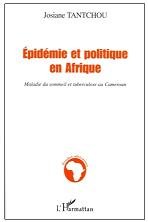
by Admin-Apad | 11 Oct 2015
Blundo G. and Olivier de Sardan J.-P. (with Bako-Arifari N. and Tidjani Alou M.), 2006, Everyday Corruption and The State. Citizens and Public Officials in Africa, London, Zed Books, 304 p.
Daily life in Africa is governed by the ‘petty’ corruption of public officials in services such as health, transport, or the judicial system. This remarkable study of everyday corruption in three African countries investigates the reasons for its extraordinary prevalence.
The authors construct an illuminating analytical framework around the various forms of corruption, the corruptive strategies public officials resort to, and how these forms and strategies have become embedded in daily administrative practices. They investigate the roots of the system in the growing inability of weakened states in Africa to either reward their employees adequately or to deliver expected services. They conclude that corruption in Africa today is qualitatively different from other parts of the world in its pervasiveness, its legitimations, and its huge impact on the nature of the state.
Lire la note de lecture dans le magazine Foreign Affairs.

by Admin-Apad | 11 Oct 2015
Olivier de Sardan J.P., Anthropology and development, understanding contemporary social change, London, Zed Books, 2005, 256 p.
This book re-establishes the relevance of mainstream anthropological (and sociological) approaches to development processes and simultaneously recognizes that contemporary development ought to be anthropology‘s principal area of study. Professor de Sardan argues for a socio-anthropology of change and development that is a deeply empirical, multidimensional, diachronic study of social groups and their interactions.
The Introduction provides a thought-provoking examination of the principal new approaches that have emerged in the discipline during the 1990s. Part I then makes clear the complexity of social change and development, and the ways in which socio-anthropology can measure up to the challenge of this complexity. Part II looks more closely at some of the leading variables involved in the development process, including relations of production; the logics of social action; the nature of knowledge; forms of mediation; and ‘political‘ strategies.
Following its successful publication in French, this important book will provoke much thoughtful debate within Anthropology, Sociology and Development Studies.

by Admin-Apad | 9 Apr 2015
Jacob J.-P. et Lavigne Delville P. ed., 1994, Les associations paysannes en Afrique : organisation et dynamiques, Paris/Genève, APAD/Karthala/IUED
On assiste depuis une quinzaine d’années à une recrudescence du mouvement associatif en milieu rural africain. Des organisations et groupements de toutes sortes se créent, de développent ou s’étiolent et disparaissent. Dans son foisonnement, sa diversité comme dans ses ambigüités, le mouvement associatif apparaît à la fois comme révélateur et vecteur des dynamiques de changement social. Cet ouvrage, qui rassemble treize contributions d’auteurs africains et européens, jette les bases d’une lecture anthropologique de ce mouvement foisonnant.
http://www.karthala.com/885-les-associations-paysannes-en-afrique.html
Voir la note de lecture de M.Haubert dans la Revue Tiers Monde et celle de Dolores Koening dans le Bulletin de l’APAD.

by Admin-Apad | 31 Mar 2015
Ann Cassiman, 2006
This seminal book offers a fine-grained ethnographic study and a woman-oriented rethinking of architectural concepts from within the life-worlds of the Kasena of northeastern Ghana. What does it mean to create a home, or turn space into a meaningful place? What can the built form teach us about the cultural construction of people’s lives? This monograph presents a detailed analysis of the practices, discourses and meanings of daily life as it unfolds in and around the domestic space of the Kasena.

by Admin-Apad | 31 Mar 2015
Josiane Tantchou -2007-
A partir de l’histoire et de la genèse de deux programmes de santé – la lutte contre la maladie du sommeil à l’époque coloniale et la lutte contre la tuberculose dans le Cameroun contemporain – l’ouvrage s’attache à répondre à trois questions : comment naissent les politiques verticales de santé en Afrique ? Comment expliquer les échecs répétés des politiques de santé en Afrique ? Qu’est-ce qui justifie la persistance des organisations internationales à investir dans la santé des pays pauvres ? Les deux maladies choisies permettent en fin d’ouvrage de proposer une réflexion sur la « mémoire des corps ».
Lire la note de lecture dans le Bulletin de l’AMADES







Recent Comments